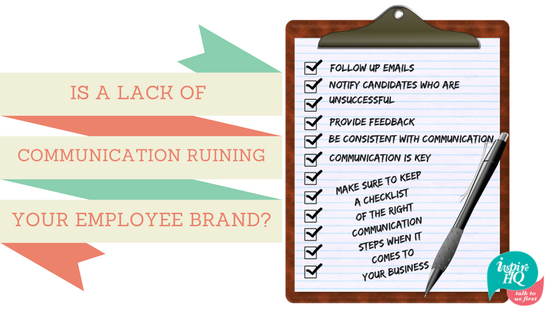We all know how time intensive and expensive running a recruitment process can be. Not to mention how much hard work it can be to manage the communication with the applicants. From acknowledging the applications received, to keeping them in the loop and updated on how the recruitment process is progressing and then advising them they have been unsuccessful when you have wrapped up the process. And then they want feedback as well!
All this communication when running a recruitment process has led businesses to come up with what they perceive as intelligent methods to reduce the job applicants expectation of communication. What are these initiatives?
- No contact details on the job advert – the only option the interested job applicant has is to hit the apply now button. There is no name, phone number or email address in an attempt to deter the job applicant from being able to make contact.
- The “Only shortlisted applicants will be contacted” disclaimer. Basically telling the job seeker, we have no time for you unless you have something we want.
- Then there are the businesses that don’t even say who they are to try and remain anonymous. Really? Who applies for a job when they don’t know what company the position is with?
And of course there are the businesses who simply don’t care about providing any communication at all and they don’t even try to make an excuse for their lack of it.
With this lack of communication and feedback being the biggest complaint I hear of from job seekers, what does this really mean for your company brand?
You have no hesitation in asking a job seeker to jump through hoops to demonstrate their interest in your vacancy; you expect them to invest the time in putting together an application, in meeting with you for an interview and in researching your company. Yet in return you can’t make the effort or spare the time to send them an acknowledgement email, or pick the telephone up and let them know they have been unsuccessful after attending an interview. Doesn’t really seem fair does it?
What is the impact of this lack of communication and feedback on your business brand? Maybe you have never really stopped to think about the impact your lack of communication is having but it’s certainly not winning you any raving fans. Based on the feedback we have gathered at Inspire HQ from candidates we have worked with, a lack of communication and feedback during a recruitment process has resulted in them:
- Not applying for future vacancies with the particular company
- Changing their perception of the company to being unprofessional, contradicting their mission, vision and values and having no respect or care for their stakeholders
- Sharing their poor experience with their family and friends (It’s the whole have a bad experience tell 10 people analogy)
- Disengaging with your business as a customer; they make a conscious decision to shop elsewhere
- Posting across their various social media channels about their poor experience
With these types of outcomes, can your business really afford NOT to provide communication to job applicants going through a recruitment process?
When handled well, regular communication and being prepared to provide feedback, even when the message at the end of the process is that you have been unsuccessful, can actually build your brand and reputation as an employer of choice. Just because you are delivering an unsuccessful message on this occasion doesn’t mean the applicant has to be left with a bad taste in their mouth about your brand. Often because so many companies are not providing communication and feedback, making this little effort will make the world of difference to the applicant, essentially turning a negative in to positive and ultimately building your brand and reputation. Taking a few minutes to send that email or make that phone call could end up creating a customer for life for the business and will go a long way in helping you build a future talent pool.
With the access we have to technology now days there really is no excuse for not acknowledging applications and notifying candidates when they are unsuccessful. It’s really just common courtesy in today’s recruitment world.


